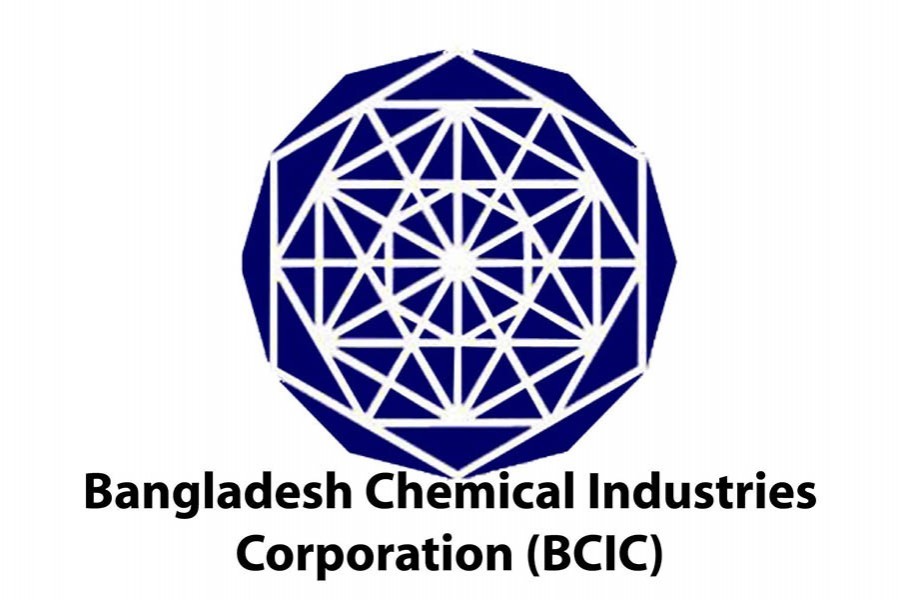Bangladesh Chemical Industries Corporation (BCIC) is in a fix for witnessing a massive loss to the tune of Tk 3.9 billion after making profits in the recent years, said officials concerned.
The officials and experts said an acute supply shortage of natural gas to its fertiliser units coupled with high production cost and low selling price of output created a setback in the corporation's earning-recovery plan.
They also pointed out that some other factors, like - apathy to reinvest in its outmoded plants and to introduce modern technology as well as poor management, made things worse.
BCIC was established under a presidential order in 1976 with an objective of setting up an efficient operation hub of large and complex industrial units, especially in the chemical sector. But, the corporation witnessed gradual fall in the production of fertilisers over the years.
Production cost and debt liabilities continued ballooning, disturbing further growth of BCIC. During inception of the corporation, the number of its running enterprises was 88, which has dwindled to only twelve now.
The largest government-run corporation counted profit over the last several fiscal years (FY) though its profit margin declined gradually. But the situation deteriorated from the last fiscal.
According to available data, BCIC incurred a massive loss to the volume of Tk 3.9 billion in FY 16 against the net profit of around Tk 390 million. The profit margin was Tk 2.52 billion, Tk 2.66 million and Tk 6.19 billion in FY 15, FY 14 and FY 13 respectively.
Of the enterprises under BCIC, only two -- Jamuna Fertiliser Company Ltd (JFCL) and Triple Super Phosphate Complex Ltd (TSPCL) -- posted some profit. The remaining units incurred loss.
As such, BCIC had to bear an outstanding balance of debt worth around Tk 54.19 billion. It received state succour in the form of subsidy to the tune of Tk 19.37 billion over the years.
When contacted, BCIC Director (Finance) Md. Haiul Quaium said they could not operate their units for scarcity of natural gas, the basic raw material for manufacturing fertilisers.
He said the fertiliser factories, except JFCL, remain closed for seven months a year on an average due to gas supply shortage. The factories need one more month to resume production when gas supply starts again.
"So, how can we produce the agriculture input? At the same time, we need to sell fertiliser at the government-fixed price, which is much lower than the cost of production."
Furthermore, almost all the factories under the corporation, except SFCL (Shahjalal Fertiliser Company Ltd) and JFCL, became outmoded many years ago.
As a result, mechanical fault, corrosion, leakage, environment pollution, and breakdown often occur, and efficiency of those units decreases, according to him.
BCIC produced over 1.6 million tonnes of fertilisers through its enterprises ten years back, but the production capacity has dropped to nearly 0.9 million now.
The corporation annually requires 88,770 million cubic feet (MMcf) of gas to operate its six urea fertiliser plants with cent-per cent load. But it currently gets less than 35,000 MMcf, leading to frequent suspension of operation.
For catering to the country's annual demand for urea (2.5 million tonnes), the corporation imports 730,000 tonnes of urea, and maintains a buffer stock of around 550,000 tonnes. A state subsidy of Tk 13,000 is being provided against import of each tonne of urea.
Seeking anonymity, a senior government official, who worked at the corporation, said survival becomes very difficult for an organisation that spends much more than it earns.
"That's the case now happening to BCIC. Bold steps to cut down its operational expenses are required. There are factories where more people are working than the actual necessity. So, we have to pay their salaries even after incurring loss," he added.
Dr. Ijaz Hossain, Professor of Chemical Engineering at Bangladesh University of Engineering and Technology (BUET), said the country lacks a specific policy for gas supply, allowing industrial units to be developed in an unplanned way.
He also said BCIC was a vital corporation for the country that had led 80 per cent of the industrial development three decades ago. But the scenario has almost reversed gradually because of negligence shown to the corporation by the successive governments.
BCIC never reinvested on its decades-old factories, escalating their production cost manifold.
"We need to make reinvestment for Balancing, Modernisation and Replacement (BMR) to increase their productivity like the profit-making KAFCO (Karnaphuli Fertiliser Company Ltd)," he added.


